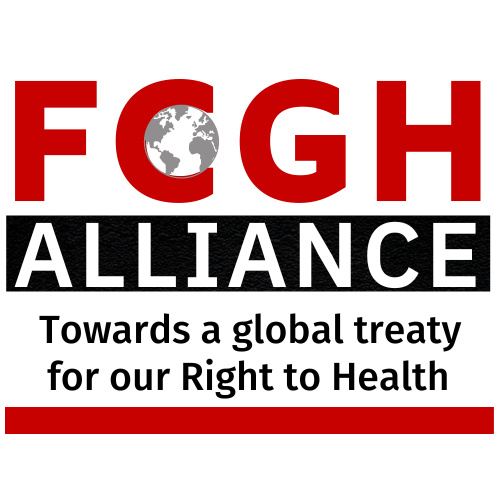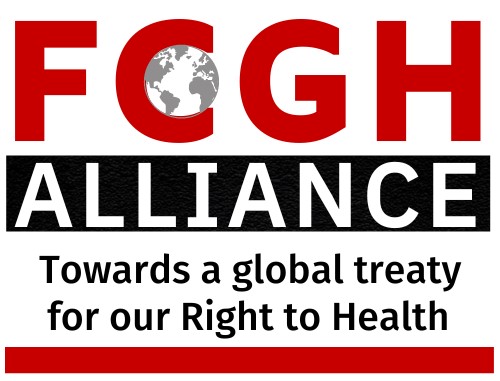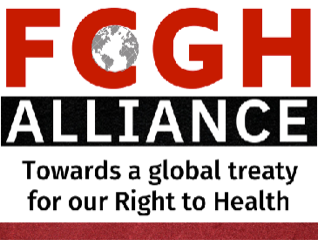The Key Principles of the FCGH
Building on years of input into how the FCGH may look, the FCGH Alliance proposes that the FCGH incorporates these principles in order to improve implementation of the right to health and reduce national and global health inequities.
I. Accountability and Capacity for the Right to Health for ALL
1. Improve compliance with the right to health in all states.
An FCGH would create greater precision about the requirements of the right to health, including with respect to implementing principles such as participation, accountability, equality and non-discrimination. It would establish regional and international mechanisms to enhance its enforcement. It should also build local and national legal, technical, civil society, and other capacities to enhance implementation and accountability.
2. Empower people to claim and enforce their right to health and governments to implement it.
An FCGH should include building capacities among communities, civil society, and governments to realize the right to health. It should contain measures that enhance accountability locally, nationally, and globally and facilitate civil society and communities holding their governments to account, including through access to justice and meaningful participation in all decisions affecting people’s health. It should ensure that government officials have the skills, training, legal authorities, and other resources required to move expeditiously towards the full realization of the right to health.
3. Reinforce the commitment to non-discrimination and advance substantive health equality, nationally and globally.
An FCGH should clarify the meaning of non-discrimination, including the breadth of its coverage (for example, to include migrants and immigrants), and mandate systematic, systemic, inclusive actions to address health inequities.
4. Ensure accountability of officials and protect resources for health.
An FCGH would demand transparency and combat corruption in health and related sectors, such as through contract, budgetary, and resource allocation disclosure requirements in health and related sectors, and standards to deter and ensure accountability for any misuse of public health resources.
II. Universal access to quality health services
5. Define state responsibilities for quality health services of ALL its inhabitants.
An FCGH should ensure equal access to high quality services for ALL, especially for those who are most marginalized. It should promote equity and ensure equal access to quality health services and commit states to ensuring that no one is impoverished by health spending.
6. Set high standards for universal health coverage through accountable processes.
An FCGH should ensure inclusive, transparent, evidence-based national processes for determining and updating a comprehensive set of services and goods that should be guaranteed to every person under the right to health. It should include a timeline for achieving universal access of high quality health services and goods.
7. Establish standards to ensure sufficient national and international resources for health.
The FCGH should facilitate states’ accountability to their obligations to utilize a maximum of available resources for health and other human rights and to international cooperation and assistance to realize the right to health. It should establish targets for national health financing and health development assistance.
III. Advancing the right to health beyond the health sector, the state, and national boundaries.
8. Advance the social determinants of health through protecting and promoting the right to health in all policies.
An FCGH would include provisions to ensure that all government ministries protect and, within their scope of authority, act to promote the right to health, including through inclusive and transparent right to health impact assessments.
9. Set standards regarding states’ responsibilities to ensure that businesses do not undermine the right to health nationally or abroad.
An FCGH should clarify that the right to health take precedence over corporate rights and require that state actions comply with the UN Guiding Principles on Business and Human Rights with respect to the right to health. This could involve using regulations or state contracts with businesses to enforce FCGH responsibilities.
10. Define the responsibilities of states to the health of people beyond their borders.
An FCGH should clarify obligations to respect and protect the right to health of people extraterritorially, including with respect to private sector actors and in their interactions with other international agreements and institutions. It should contribute to fulling people’s right to health extraterritorially, including with respect to equity and adequate investment in research and development.




